PlayStation versus Xbox, Mac versus PC, Apple versus Android. Some arguments just can’t be settled. Or can they? Regardless of which hi-fi speakers you own, in the analogue versus digital war is vinyl better than CD? For those old enough to remember, one of the earliest true format wars – VHS versus Betamax – saw consumers side with cheaper but arguably inferior technology. While Betamax was firmly killed off by its competitor in the mid-eighties, the same can’t be said of vinyl records. The arrival of the Compact Disc may have ushered in a digital music revolution in the 90s, but for music fans good old black wax never really died. It lived on in people’s vinyl storage crates and a thriving second-hand marketplace for decades.
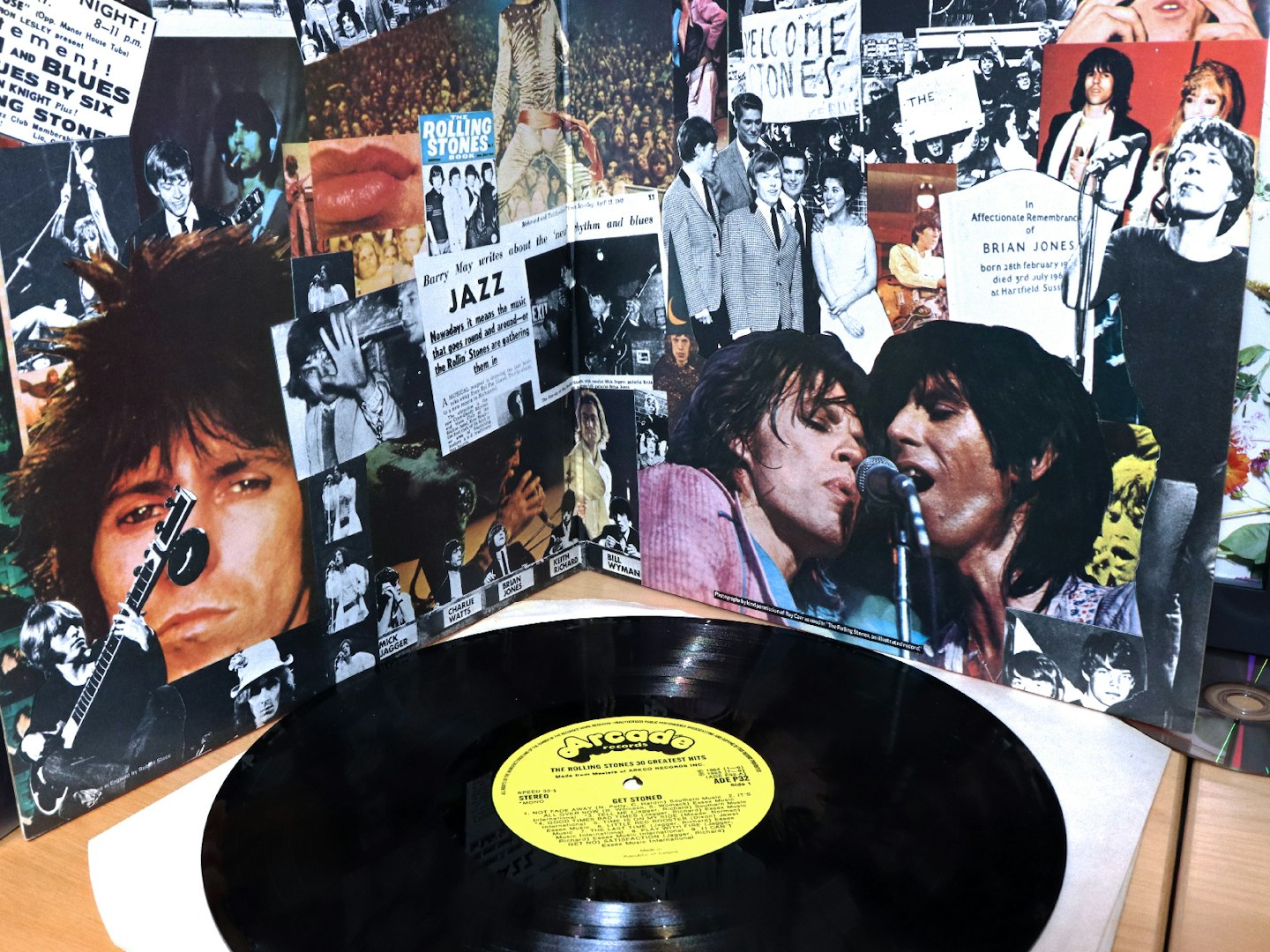
Back in black
Cut to today and we’ve seen brand-new vinyl records make their way back into music stores, overtaking CDs in several countries as the most popular physical music format. Record Store Day is now a thing, growing into an international sales event. Yes, classic albums have been reissued as new pressings (many using digital masters), but vinyl has also become a premium format for new record releases as listed on Amazon and in various stores worldwide. Some of that resurgence is down to a growing fascination with all things retro but, unlike most fads, vinyl has lived through its initial resurgence and continues to grow in popularity. Newcomers and vinyl veterans alike have fallen in love with the ritual of spinning side A and flipping to side B – losing yourself in the sleeve notes while immersed in those warm analogue tones.
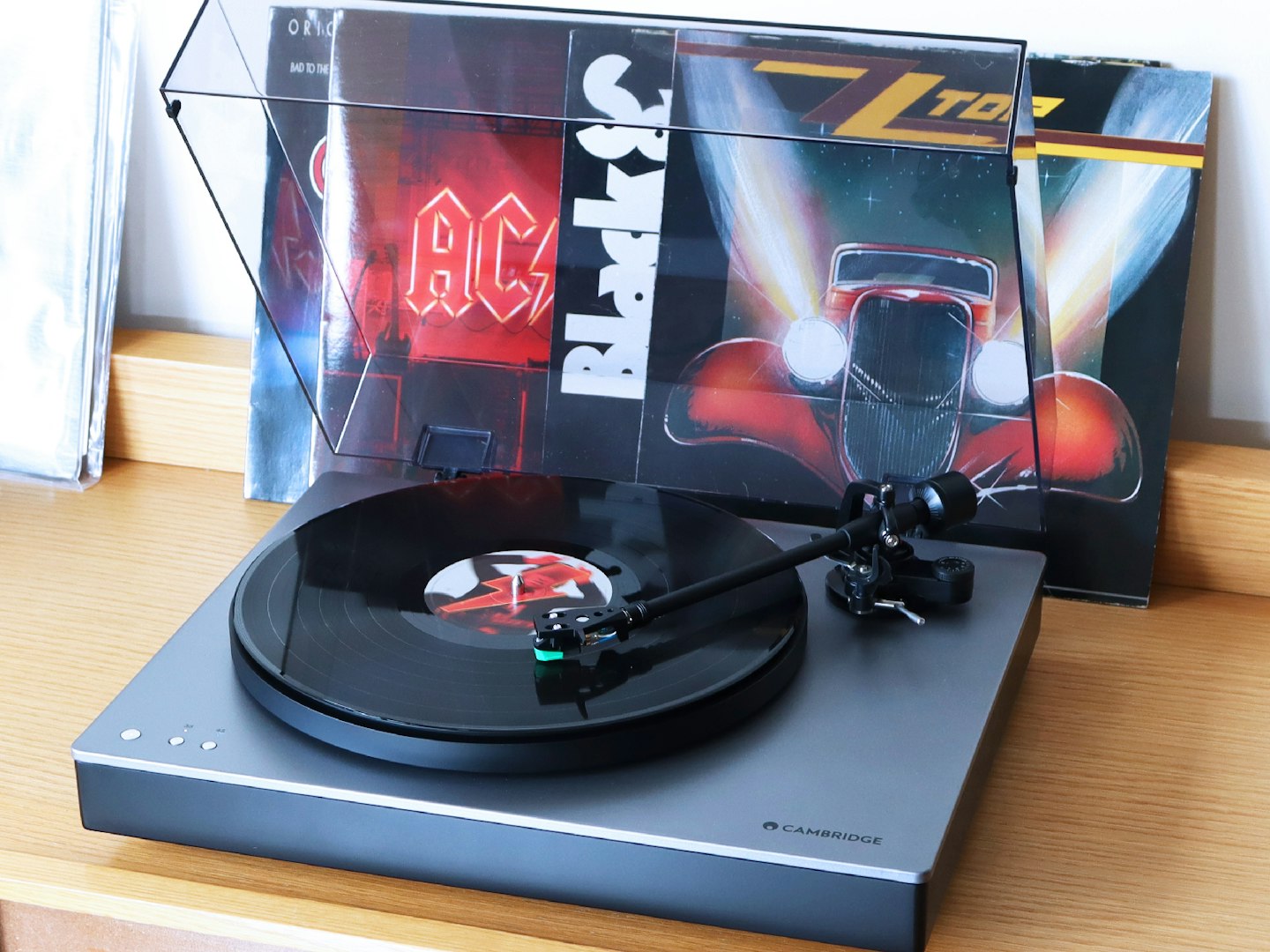
Spin the platter, drop the needle
Much like its analogue cousin the compact cassette, you can certainly buy record players built around cheap and nasty mechanisms that offer terrible audio. But thankfully, top hi-fi brands like Pro-Ject, Rega, Fluance, Audio-Technica and Technics are producing a new wave of affordable and high-budget decks that really do deliver the best that analogue music has to offer. We’ve seen the return of reliable fully-automatic direct drive and belt drive models, as well as highly-tweakable decks like the Cambridge Audio Alva ST we reviewed - sporting with anti-skate, tonearm adjustments, swappable headshells and some premium cartridge choices to really fine-tune your experience.
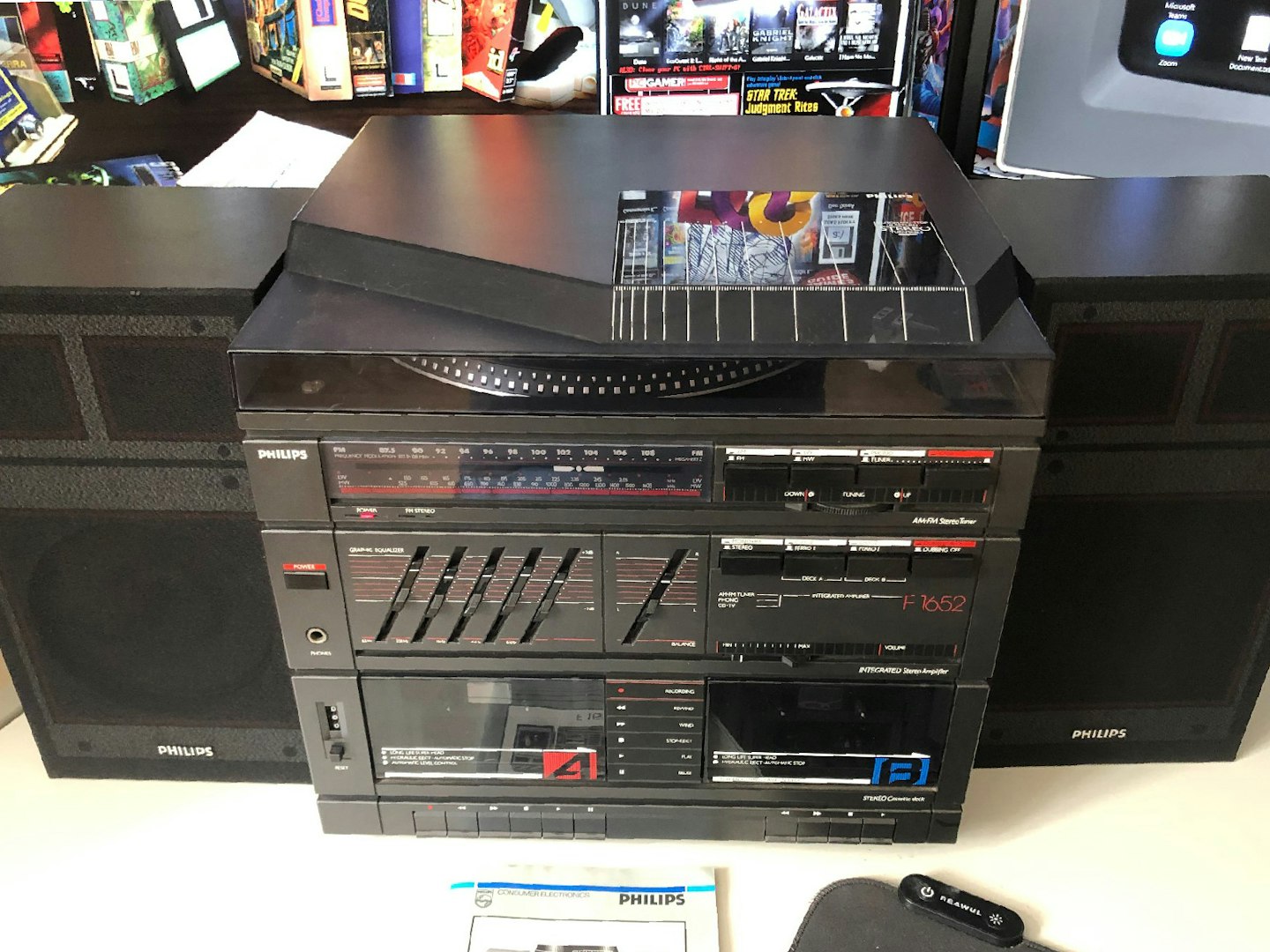
War. What is it good for?
So, where’s the big beef? Well, much like the video industry’s battle for supremacy with the Betamax and VHS formats, each camp has its staunch loyalists. Sometimes that devotion is based on nostalgia or convenience, but much of the time it’s all about sound quality. Listening preferences may be subjective, but the analogue versus digital debate seems to cut to the core of people’s need to justify their choice.
Music fans often end up spending the equivalent of a small car on their hi-fi equipment, so it’s an important purchase to get right. Choosing digital over analogue would seem to reduce that risk, given the inherent precision of all of those ones and zeros. But, chasing audio perfection can be an expensive and disappointing pursuit when it comes to hi-fi. Most serious or conscientious vinyl fans will end up with a large array of cleaning gadgets – with many advocating ultrasonic record cleaners as the ultimate maintenance tool.
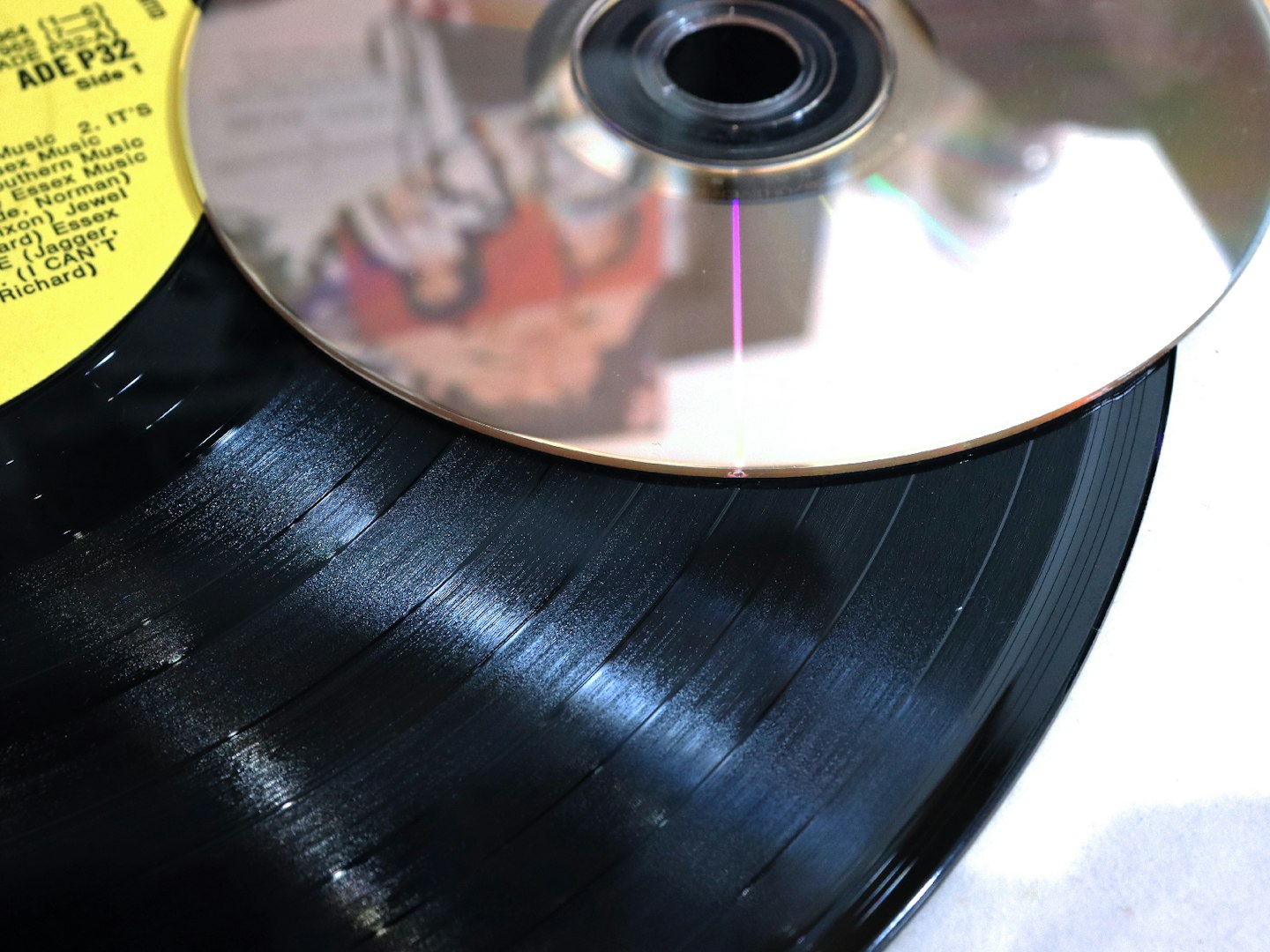
Is digital better than analogue?
Every argument for CDs and against vinyl makes a completely valid point: On a technical level the dynamic range of CD digital audio (the difference between the loudest and quietest parts) is superior to vinyl, as is channel separation. And, as a digital format read by a laser, noise is eliminated and read errors are reduced to a negligible level. For records the physical contact between a stylus and a groove is, well, prone to physics; Wear and tear, stylus alignment issues, dust, fingerprints, scratches and more. And we haven’t even touched on the performance of the entire cartridge, tonearm and platter. Getting the best out of vinyl is clearly something of a moving target. There’s plenty of room for error compared to the CD and its frictionless digital precision.
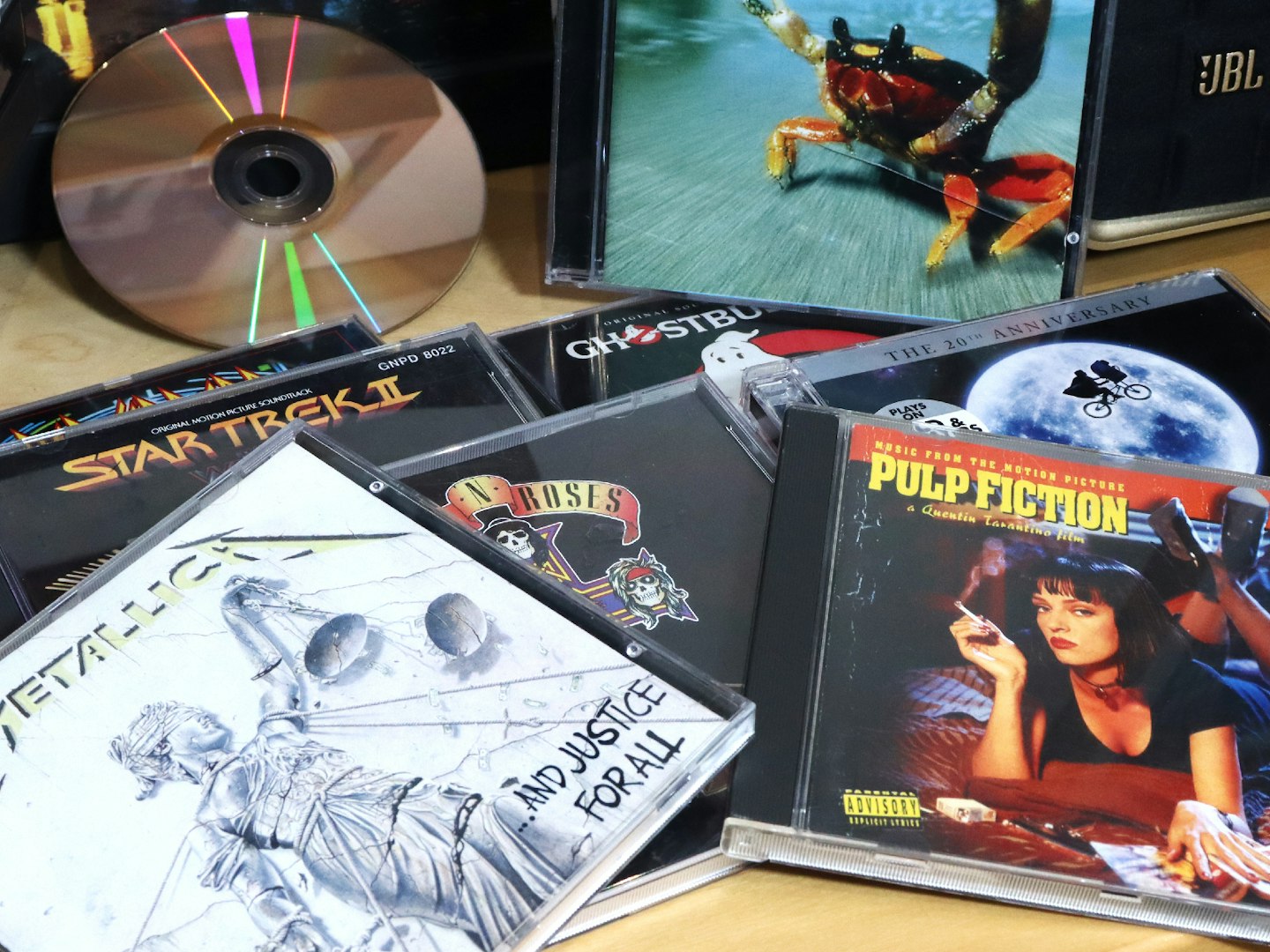
But, analogue is better than digital… for some
And here’s why. It’s not about frequency range, playback accuracy or bitrates – it’s about the mind. We’ve evolved in an analogue world filled with imperfection. From the rippling of ocean waves and the asymmetry of the human face to the sound of rain and the shape of clouds – nothing is perfect. We subconsciously expect imperfection. Without it, many of us can enter an ‘uncanny valley’ of artificial clarity that’s hard to relate to. Production issues like clipping due to excessive loudness aside, many vinyl fans argue that CDs sound harsh – and this could be due to that uncanny valley of sonic perfection. Life's soundtrack is organic and muddied – and not just by the person talking in the next room or the whine of the central heating. As we discovered in our review of the Loop Experience Earplugs, what we consider to be the 'silence' of an average home – faint birdsong, the low hum of household appliances – registers as 0 decibels. But 0db it's not absolute silence. We live in a sea of imperfect noise.
Beyond what you can hear
The audio boffins at Soundguys.com have a brilliant breakdown of the science behind the vinyl versus digital, and say that “vinyl records can easily cater to the entire frequency range of human hearing and beyond. Quoted limits range from as low as 7Hz to as high as 50kHz, depending on the hardware”.
In short, the typical range of human hearing is 20 Hz to 20 kHz – and CDs cover the same frequency range. However, some people can hear frequencies outside those limits, so the warmth that some listeners associate with vinyl could be tones produced by the stylus as it navigates the groove. But, we don’t think this is the whole story. Lossless and hi-res audio formats can also match or exceed those limits – and they often also lack the unique warmth of vinyl, even after putting it through a decent Digital to Analogue Converter (DAC).
Get into the groove
One compelling theory is that the mind subconsciously recognises imperfection and feels at home with it. It’s literally more natural to the ear. Although not scientific, it could be a more subliminal answer to why some prefer the sound of vinyl over CD and analogue over digital for their music. It doesn’t mean it’s technically better on all counts – especially true if you’re using a low-budget deck like the Lenco LS-100 Turntable we reviewed. However, poor handling, damage and static aside, vinyl can be preferable for those who can hear a wider frequency range and want that ‘warm’ subtly imperfect listening experience. It’s a mechanical stylus travelling down a groove, with all of its flaws, that help create that signature analogue sound. The edges are slightly rounded off at an almost imperceptible level – but it's there. It’s what keeps people buying and listening to records in 2024 and beyond.
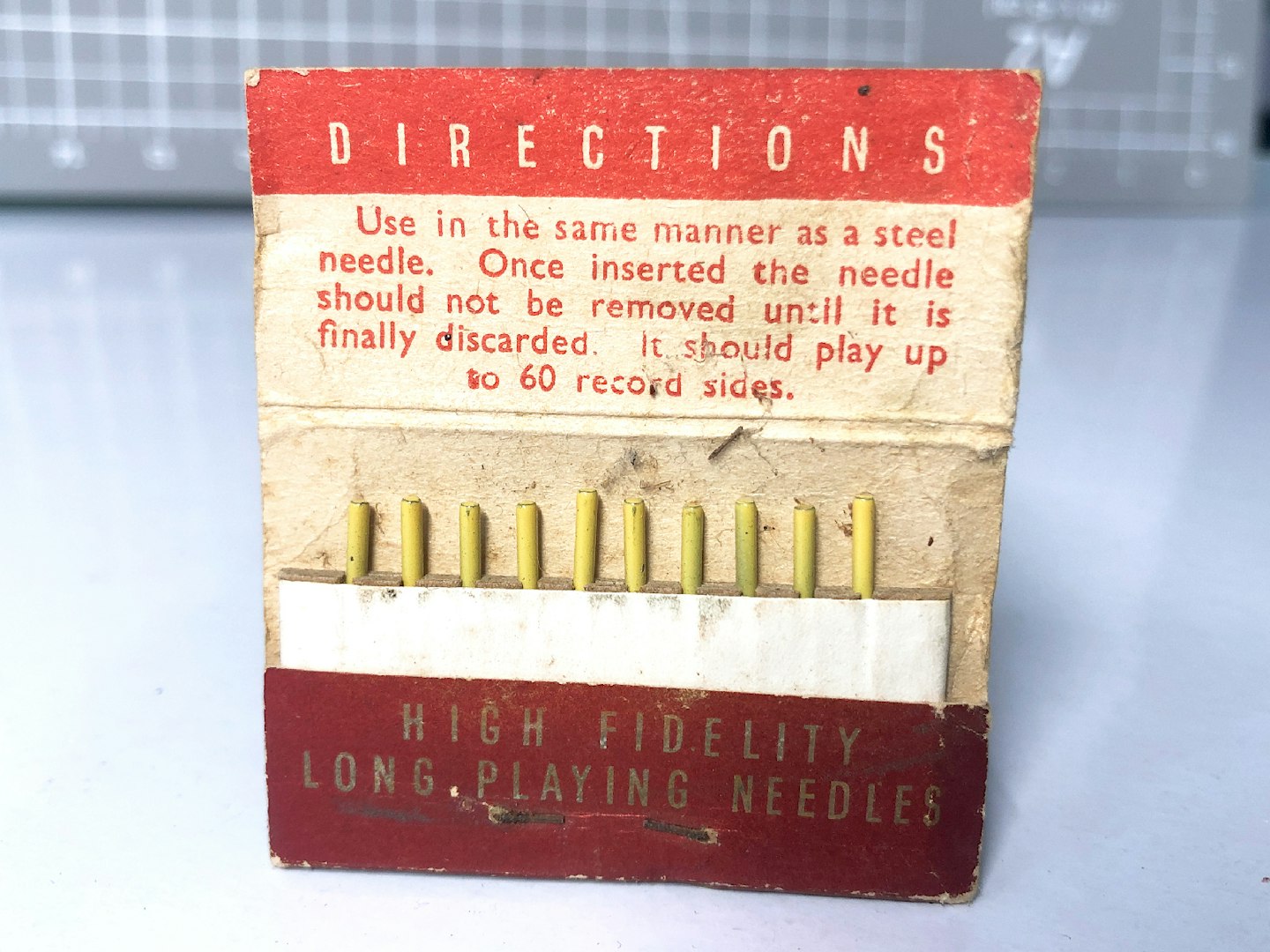
So, who wins?
You do. From DAB radios and streaming music services to budget record decks and affordable turntable amps, the beauty of the latest audio tech is that you can have it all. Ultimately, music is all about enjoyment, whether that’s being able to use your Alexa to instantly summon your favourite tunes and pipe them to your multiroom speakers, or settling down for a vinyl listening session with all of those gatefold sleeves to display and inner sleeves to read. For vinyl fans, music is more than just about the listening – it’s the ritual of looking after the wax, dropping the needle and listening to each track in the order the artist intended. Some of the greatest albums ever recorded tell their own story in this way. The best speakers for vinyl and a decent amp can only make everything sound better.
The immediacy of digital music may liberate music fans from all of that fuss – and that includes vinyl owners at times. So, when the dust has settled (sometimes in the grooves), the internet quits halfway through your Spotify playlist, and that tiny scratch on your CD makes it skip, just think: Nothing is perfect. But, when it comes to vinyl, that could be why it sounds better.
Why should you trust us?
At What’s The Best, our mission is to provide accurate and reliable reviews, ensuring our readers receive honest and transparent information about the best technology products available. Anything less would undermine our commitment to being a trusted source of unbiased product information.
Our dedicated in-house writing team comprises experts with extensive experience and a genuine passion for technology. Collectively, we have spent decades testing and writing about tech, leveraging our expertise in all our articles, advice pieces and reviews.
We maintain complete editorial independence and do not accept payment for product reviews. Our writers have full control over their content, ensuring that products are selected based solely on the needs of our readers. While we may earn commissions or other compensation from links on our website, this never affects our product choices. These links enable us to continue offering valuable consumer advice, without compromising the integrity of our reviews.
Chris Duffill is a Senior Tech Writer and Reviewer for What's The Best. His background includes writing, editorial, marketing, design, video production and photography.
He specialises in home entertainment and audiovisual tech, including speakers, amplifiers, turntables, streaming media players, and TVs. He is also one of our resident experts in computing (PCs, tablets, smartphones, smartwatches), DSLR photography and all kinds of digital cameras. He also writes about retro gaming, game consoles and various electronic gadgets. If it plugs in, lights up or makes a noise, he’ll write about it.
Subscribe to the What’s The Best Newsletter to keep up to date with more of the latest reviews and recommendations from the rest of the What’s The Best team.
